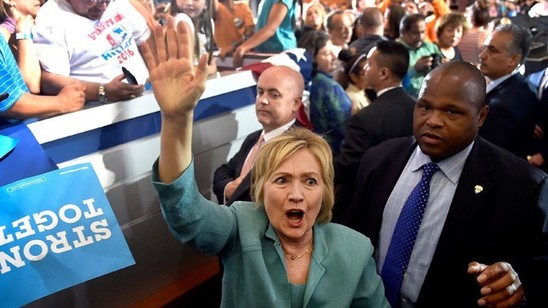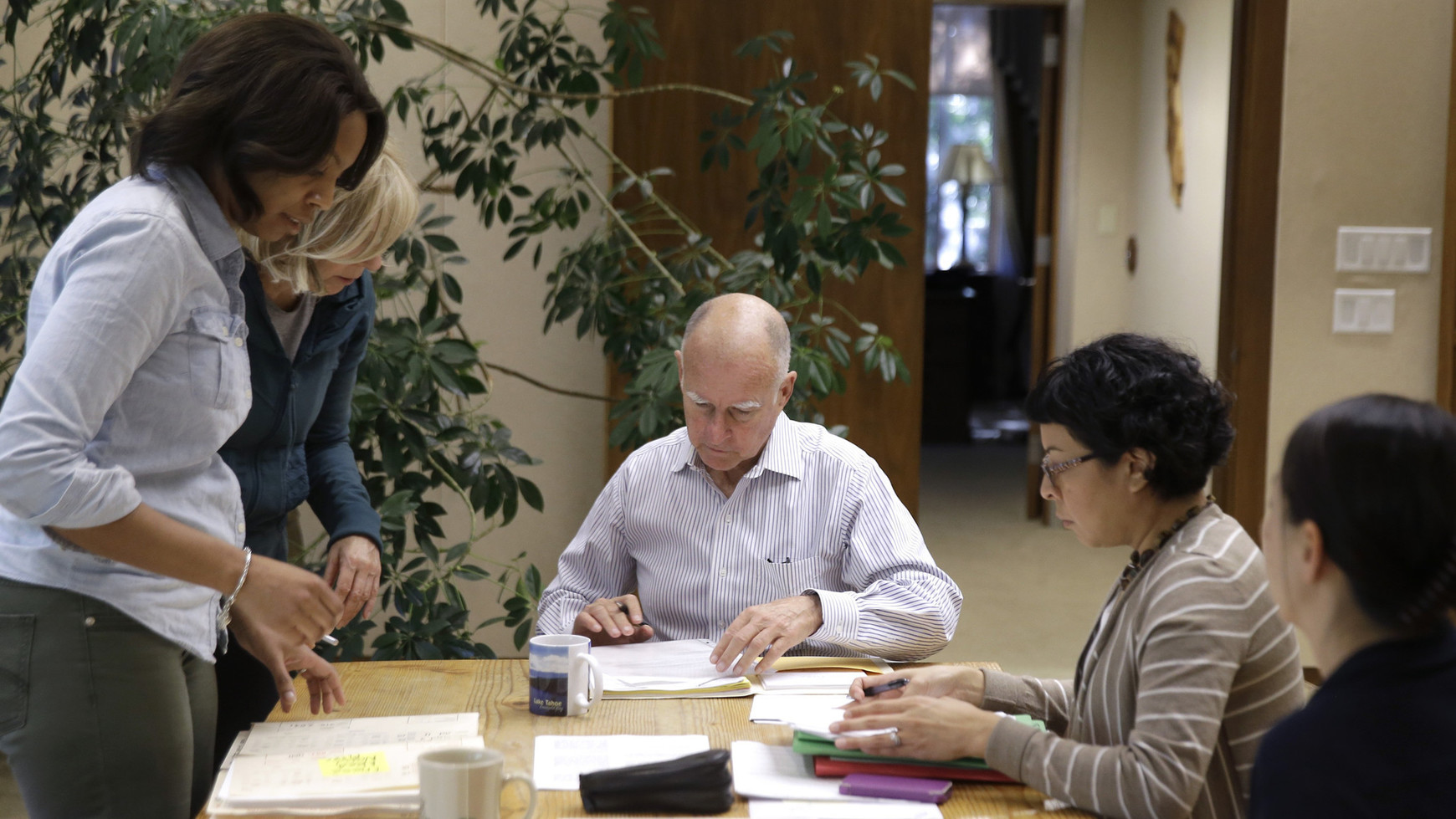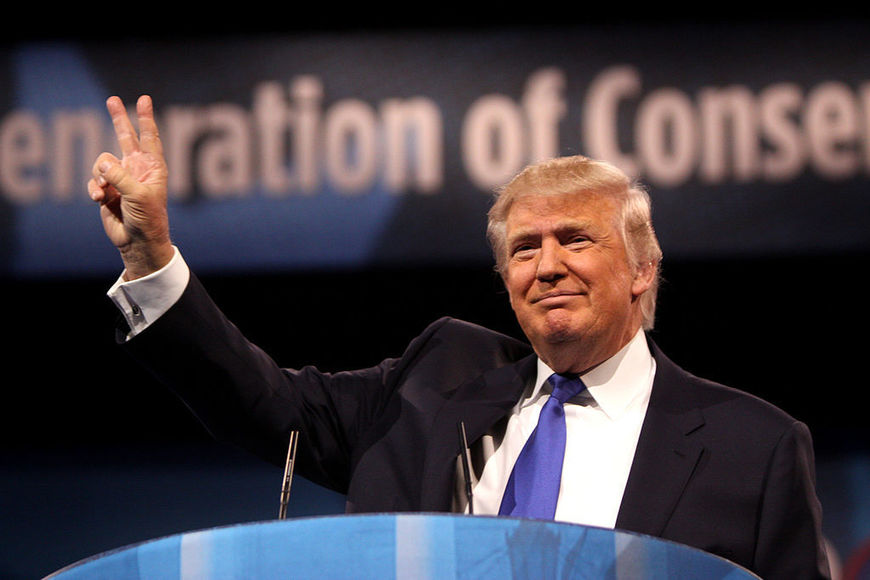
J.J. Goldberg
Forward
It’s becoming more and more obvious that there are some folks out there who simply can’t abide good news. Not just because they’re pessimists and get thrown when things are going well. No, we’re talking about the sort of people who find good news offensive. It outrages them. Their ranks are growing, and so is the level of outrage.
The mood has been in the air for a while now, but for me, at least, it really hit home in the last few days. What’s clued me in is the reader response to my August 26 column in the Forward. The one about that big new survey of Israeli and Palestinian opinion on peace negotiations and the two-state solution.
The survey (executive summary here, full survey here)found that most Palestinians, by a slim margin (51%-48%), and most Israelis by a larger margin (58%-32%), would like to see Israeli and Palestinian states living side by side. Majorities on both sides say they don’t want a single unitary state covering what’s now Israel and the territories. And that’s what I reported.
Well, you’d think I’d just called for Israel to adopt ham as its national food. Angry readers weighed in via comments on the Forward website, posts on Facebook and even personal emails, telling me I don’t know what I’m talking about. These four were typical, if somewhat mild:
“What nonsense. Palestinians are totally opposed to any solution which allows Israel to continue.”
“I read your essay about ‘but for this misperception.’ You didn’t mention the most important question of all: the ‘Right of Return.’ Palestinians, almost to a person, believe that the ‘refugees’ living in Syria, Jordan, Lebanon and Gaza should ‘return’ to their ancestral homes west of the Green Line. There is no deal to be made, there is no compromise here. I could point you to endless links to back this up…”
[Quoting from my column:] “ ‘Formal Israeli-Palestinian negotiations came close to agreement along the same terms in 2000-2001 and again in 2008. In both cases, however, Israelis presented what they called a ‘final offer,’ which Palestinian leaders declined to accept as final.’ I guess if we connect these dots, Israel should get more of the blame for the absence of a deal. Which still leaves this unanswered dot: Did the Palestinians ever make an actual offer, final or not?”
“The Christian prays for his daily bread; the Jew, for his daily illusion.”
Now, the truth is, I’m used to readers calling me names. Comment sections on news websites seem to attract grumps and trolls who like being able to talk trash and remain anonymous, or at least unseen. It’s part of the game, and sort of entertaining. So last week’s negativity was no surprise.
What did catch me off-guard was the nature of the objections. Usually readers weigh in to dismiss my opinions and insult my lineage. This time a fair number of readers wrote to tell me what the Palestinians actually believe. They seemed to think that the survey — conducted by two of the most respected research institutes in Jerusalem and Ramallah — was not a measure of public opinion but an expression of my warped personal outlook. That is, they looked at a piece of scientific research, saw that it doesn’t confirm their own prior beliefs and decided that it’s made up and that they know more than the experts.
If this sounds familiar, it should. It’s part of a growing tide of anti-intellectualism, anti-empiricism, science denial and conspiracy theory that’s swept the political right in the last decade, with particular virulence in America and Israel. In America it expresses itself in attacks on evolution, in the anti-vaccine movement and especially — and most dangerously — in climate denial. In Israel it’s exploded in the last few years in repeated attacks from the settler movement and religious nationalist right against the military and intelligence command. What the two countries’ denialists have in common is the belief that experts — the scientists who took us to the moon and cured smallpox, the generals who’ve protected Israel for 70 years — are a bunch of phonies.
And what of our critics — the ones who don’t like the new survey?
They raise three main points: First, that the Palestinians will never accept Israel’s existence; second, that they’ll never give up the right of return for Palestinian refugees; and third, that they never negotiate in good faith or agree to any concrete proposals.
It’s important to recall that there have been three rounds of formal negotiations between Israel and the Palestine Liberation Organization since the signing of the Oslo Accords in 1993. The first was in 1995, between Israel’s then-economics minister Yossi Beilin and then-deputy chairman of the PLO, Mahmoud Abbas. They reached an agreement (text here) in mid-October. It was leaked to the press on October 28, embarrassing Abbas and his boss, Yasser Arafat, who promptly disavowed it. Whether the talks could have continued will never be known. Beilin never had a chance to show it to his boss, Israel’s Prime Minister Yitzhak Rabin, because Rabin was assassinated on November 4, a week after the document hit the news. Shimon Peres, who succeeded Rabin as caretaker prime minister, didn’t believe he had a mandate to continue the final-status talks. He insisted on seeking his own mandate by callilng new elections and winning the job in his own right. He faced the voters the following May and lost to Benjamin Netanyahu, who rejected the idea of negotiating a final status agreement with the PLO.
Talks began again in 2000 under Ehud Barak, who defeated Netanyahu for the prime ministership in 1999. He famously met Arafat at Camp David in July 2000 for a two-week summit. As has been discussed endlessly, the summit ended badly when Arafat stormed out on July 25, having refused to accept various proposals that Barak had put forward but offering none of his own.
This version is partly based on a misunderstanding of the nature of diplomatic negotiations. Negotiators like to say that “nothing is agreed until everything is agreed.” A related truth is that there’s no such thing as a final offer. Negotiators present ideas to the other side, which then presents own ideas. Eventually they meet in the middle. The fact that Arafat didn’t accept Barak’s “final offer” simply means they weren’t done negotiating.
Largely lost in the fog of history is the fact that talks resumed in August in Jerusalem. Aides to Barak and Arafat began meeting to discuss how, where and when to reconvene the formal negotiation, picking up where they had left off in July. The reconvening took place at the White House in mid-December. After about a week of talks, on December 23, President Clinton met with the negotiators and presented his own proposal for a peace agreement, the so-called Clinton Parameters (text here). The two sides sat down in January at the Egyptian resort of Taba to go over details and work on a final agreement.
In the meantime, however, Barak was losing his government. On September 20, Arye Deri, the head of Shas, a key coalition partner, entered prison on a bribery conviction. Deri had been a strong ally of Rabin and a key coalition partner. The man appointed by Shas spiritual mentor Rabbi Ovadia Yosef to succeed Deri as head of the party was Eli Yishai, a radical rightist who would eventually join forces with Meir Kahane’s disciples. As soon as Deri entered prison, Yishai began organizing to bolt the coalition, leaving Barak with a minority government. Then, on September 30, the bloody Second Intifada broke out.
By the time the negotiators reconvened formally in Washington in December, Barak was hanging on by a thread. He called for a new election February 7, hoping he could present a peace agreement and turn the vote into a referendum. But time ran out at Taba. Talks were suspended on January 27, to be reconvened after Barak was reelected 11 days later. But Barak was in trouble. He was sponsoring historic negotiations while heading a minority government. He was, moreover, negotiating with an enemy while his nation was under fire. Both sides’ negotiators would later declare that they were closer than ever to a full agreement. But on February 7 Barak lost to Ariel Sharon. Once again, negotiations were cut short when the Israeli leader overseeing the negotiations was removed from office.
One of the best, most objective histories of the Camp David-Taba process is this essay by political scientist Jeremy Pressman, director of theMiddle East program at the University of Connecticut. It explains both the sequence of events and the positions of the two sides on the issues being negotiated. It’s only 39 pages and well worth the read.
A year later after Taba, on March 27, 2002, the League of Arab States held a summit in Beirut and adopted the Saudi-led Arab Peace Initiative (text here). It offered Israel full peace, normal diplomatic relations and a formally declared end of the Arab-Israeli conflict, if Israel would accept creation of a Palestinian state along the pre-1967 lines with East Jerusalem as its capital, as well as “an agreed, just solution to the problem of Palestinian refugees” — that is, a solution that’s agreed on between the two sides. The word “agreed” wasn’t in the original draft, but was inserted at the insistence of the Jordanians, who wanted to make sure the document was something Israel might at least consider.
The document was adopted unanimously by the 22 Arab states, including the so-called State of Palestine, which is a member of the league. The PLO had formally signed an international document accepting the principle of peace with Israel and a compromise on the refugees.
A year later, in 2003, a group of Israelis and Palestinians met in Geneva for an unofficial effort to draft a model peace agreement. The goal was to show that it was achievable. The Israeli delegation consisted of private citizens and was led by former minister, now opposition figure Yossi Beilin. The Palestinian delegation was led by a serving Palestinian Authority cabinet minister and close aide to Abbas, Yasser Abed Rabbo. The document they drafted (text here), known as the Geneva Initiative (sometimes called Geneva Accord, though that implies some official status it doesn’t have) is strikingly similar to the Clinton Parameters.
During the Geneva meetings, Beilin had a telling conversation over lunch with a member of the Palestinian delegation, Qadoora Faris, a prominent Fatah figure who is close to convicted terrorist Marwan Barghouti. As Beilin tells the story, he asked Faris why he was bothering discussing a Palestinian state on 22% of historic Palestine when they could simply wait 20 years until Palestinians were a majority in Israel and the territories. All they’d need to do is demand one-man-one-vote. “Yes, we could wait 20 years until we’re a majority,” Faris said in reply, as Beilin told it to me. “Then we could commence another 100 years of violent struggle until we won our rights. But I have children. I want them to have a life.”
In 2008 there was yet another round of negotiations between Israel and the PLO — this time a series of face-to-face talks between Israeli prime minister Ehud Olmert and Palestinian leader Mahmoud Abbas. Those talks climaxed on September 16, 2008, when Olmert showed Abbas a map of the Israeli-Palestinan border as he proposed drawing it. He also offered to absorb 5,000 Palestinian refugees as a sort of symbolic right of return.
What happened next has been the topic of furious debate ever since. The conventional Israeli version is that Abbas said no, just as Arafat had done at Camp David. In fact, Abbas met with his negotiations committee the next day to discuss how to respond to Olmert’s proposal. The two sides were still divided on several issues, including the settlement-city of Ariel, deep in the heart of the West Bank, that Israel refuses to dismantle and the Palestinians refuse to leave in place.
A larger issue was the refugees. Abbas reportedly told his committee that Olmert’s offer to absorb 5,000 was “a joke.” A leaked document that I was shown later, reliably described to me as minutes of that meeting, indicated that Abbas was going to insist on a formula that would add up to 150,000. To the average Israeli ear that sounds like a frighteningly high number of refugees to absorb, even though Israel would, under the Abbas formula, retain full right to pick and choose whom to admit. It’s also less than the 200,000-odd Palestinians who would be removed from Israel’s population rolls once East Jerusalem became the Palestinian capital. But Abbas never had the opportunity to discuss the number with Israel.
Another document, part of the so-called Palestine Papers leaked to Al Jazeera and The Guardian in 2011, quoted Abbas elaborating on his view of the refugee issue in a March 2009 meeting with the negotiations committee. “On numbers of refugees, it is illogical to ask Israel to take 5 million, or indeed 1 million,” Abbas was quoted as saying. “That would mean the end of Israel.”
The larger issue, though, was Olmert. When he and Abbas held their fateful meeting in September, he was already a caretaker prime minister. He had resigned in August, claiming that the distraction of the snowballing bribery investigation against him was preventing him from giving the job his full attention. He handed chairmanship of his Kadima party to foreign minister Tzipi Livni, who set about trying to assemble her own coalition within the existing Knesset. But she was unable to get the parties in Olmert’s coalition to stay on with her. On October 26 she gave up and publicly called for new elections, to be held the following February.
For the Palestinians, all this created a dilemma. Abbas and Olmert were, by both men’s estimates, about two months away from clearing up all the details and concluding a deal. But as a caretaker prime minister, Olmert’s authority to close a deal this controversial was unclear. Moreover, while Livni was still chasing her coalition in September, it was already evident that she wasn’t going to make it. If Netanyahu won the election, would he agree to implement an agreement concluded by a caretaker prime minister? An agreement that he fundamentally opposed in principle?
In the end, of course, Netanyahu did win the February 2009 election, returning to the office he’d left 10 years before. Abbas assumed that he would pick up the negotiations where they’d left off in September. But Netanyahu insisted on negotiating “without preconditions,” meaning without accepting the progress that had been made since 1995, but instead starting all over from scratch. And that’s been the argument ever since.
For a third time, negotiations were cut short when the Israeli prime minister was removed from office.
One of the best summaries of the events surrounding the Olmert-Abbas negotiation is this article by Canadian-Israeli journalist Bernard Avishai, published in the New York Times Magazine in 2011. Avishai interviewed both Olmert and Abbas for the article. It’s well worth a read.
And then you can resume calling me names.
Source: forward.com






